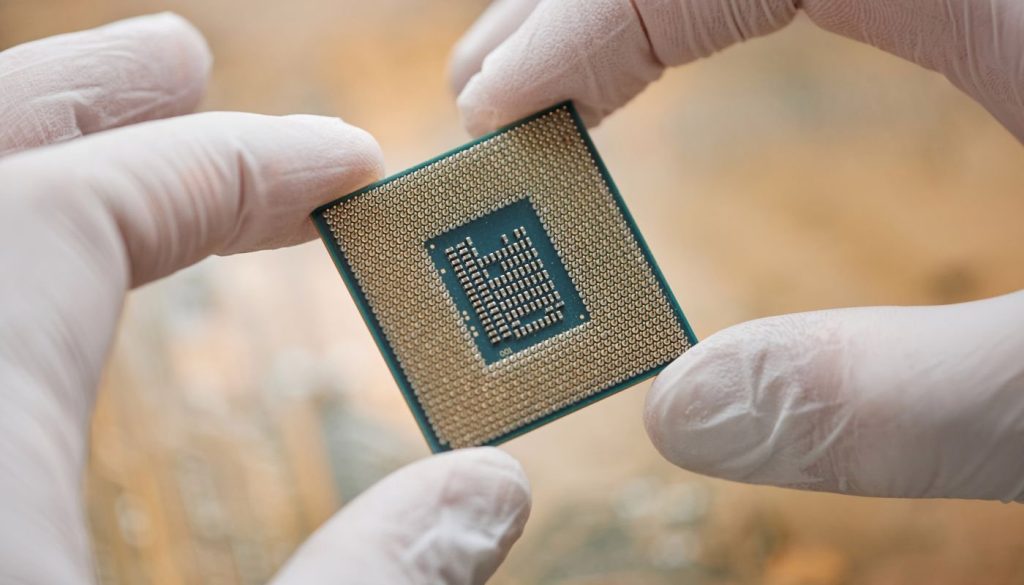Listen to the article
Tensions Rise as Nexperia’s Dutch and Chinese Operations Clash Following Government Takeover
Internal conflict has erupted at semiconductor manufacturer Nexperia following the Dutch government’s unprecedented seizure of control from its Chinese owners. The company’s China-based unit has accused the headquarters of cutting off salaries and system access, allegations that Nexperia’s Dutch management firmly denies as “false and misleading.”
The dispute highlights the growing strain within the organization since the Netherlands implemented its rare intervention, which placed Nexperia under state oversight and suspended its China-linked leadership. This move has effectively split the company’s operations along geopolitical lines.
In a statement addressing the controversy, Nexperia’s European headquarters rejected claims circulating from individuals in its Chinese operations that the Dutch government and company leadership had abandoned the Chinese market or stopped paying employees. The company said it has reported these communications to authorities while reaffirming its commitment to both staff and customers in China.
“Operations remain uninterrupted,” Nexperia insisted, despite acknowledging the challenges of navigating government-imposed restrictions under the Dutch takeover. This response appears to be part of a broader effort to maintain stability and reassure partners during a period of unprecedented disruption.
China has responded forcefully to the Netherlands’ actions, with Foreign Ministry spokesperson Lin Jian condemning the move as “discriminatory” and politically motivated. Beijing “firmly opposes overstretching the concept of national security,” Lin stated during a regular press briefing, characterizing the intervention as an unfair targeting of Chinese companies.
The Dutch government’s takeover includes suspending Wingtech chairman Zhang Xuezheng and requiring state approval for any major management or structural changes at Nexperia for the next year. Dutch officials described these measures as “exceptional” but necessary to protect critical semiconductor technology in Europe.
In apparent retaliation, Beijing has introduced new export restrictions on certain components and subassemblies produced by Nexperia’s Chinese facilities. The company reports it is “actively engaging with Chinese authorities” to secure exemptions that would allow it to maintain supply commitments to global customers.
The dispute has sent ripples through financial markets, with Wingtech’s stock experiencing volatility since the takeover announcement. Analysts suggest this case exemplifies how corporate operations are increasingly becoming collateral damage in broader geopolitical conflicts over semiconductor supply chains.
While Nexperia doesn’t produce cutting-edge AI processors, its role in the semiconductor ecosystem remains crucial. As one of Europe’s largest manufacturers of power and logic chips, the company’s products are essential components in numerous electronic systems. Many of these chips follow a complex international journey—manufactured in Europe, shipped to China for packaging, then returned to global markets.
The growing demand for computing hardware has transformed even basic components into strategic assets. Nexperia’s semiconductors are integral to technologies ranging from factory automation systems to autonomous vehicles. Any significant disruption to this supply chain could have serious implications for Europe’s automotive and electronics industries.
Dutch officials have indicated they are in discussions with Beijing to ease the newly imposed export restrictions, though no breakthrough appears imminent. For the foreseeable future, Nexperia remains caught in a precarious position between two competing governments with divergent strategic interests.
The situation at Nexperia reflects the broader challenges facing the global semiconductor industry as national security concerns increasingly intersect with international business operations. Companies with cross-border supply chains and multinational ownership structures find themselves navigating a complex geopolitical landscape where technological capabilities have become central to national power competitions.
Verify This Yourself
Use these professional tools to fact-check and investigate claims independently
Reverse Image Search
Check if this image has been used elsewhere or in different contexts
Ask Our AI About This Claim
Get instant answers with web-powered AI analysis
Related Fact-Checks
See what other fact-checkers have said about similar claims
Want More Verification Tools?
Access our full suite of professional disinformation monitoring and investigation tools




7 Comments
Nexperia’s response denying the claims from its China-based unit suggests the company is trying to project stability and continuity despite the internal tensions. It will be important to see if they can maintain operations on both sides without further escalation.
This dispute underscores the challenges facing multinational companies as geopolitical tensions rise. Nexperia will need to carefully manage its relationships with both the Dutch government and its Chinese stakeholders to find a path forward.
Well said. Maintaining a balanced approach between national security concerns and commercial realities will be critical for Nexperia as this situation unfolds.
The semiconductor industry is a flashpoint for geopolitical competition, so it’s not surprising to see this kind of conflict arising around a company like Nexperia. I’m curious to see how the Dutch and Chinese authorities respond in the coming weeks.
The Dutch government’s intervention in Nexperia’s operations raises significant questions about national security and foreign investment oversight. This is a delicate situation that requires careful navigation by all parties involved.
Absolutely. The semiconductor industry is incredibly strategic, so I can understand the Dutch government’s desire to closely monitor critical assets like Nexperia. But they need to balance that with respecting the company’s global footprint.
This dispute highlights the complex geopolitical tensions surrounding semiconductor supply chains. It will be interesting to see how Nexperia navigates this situation and maintains operations in both China and Europe.